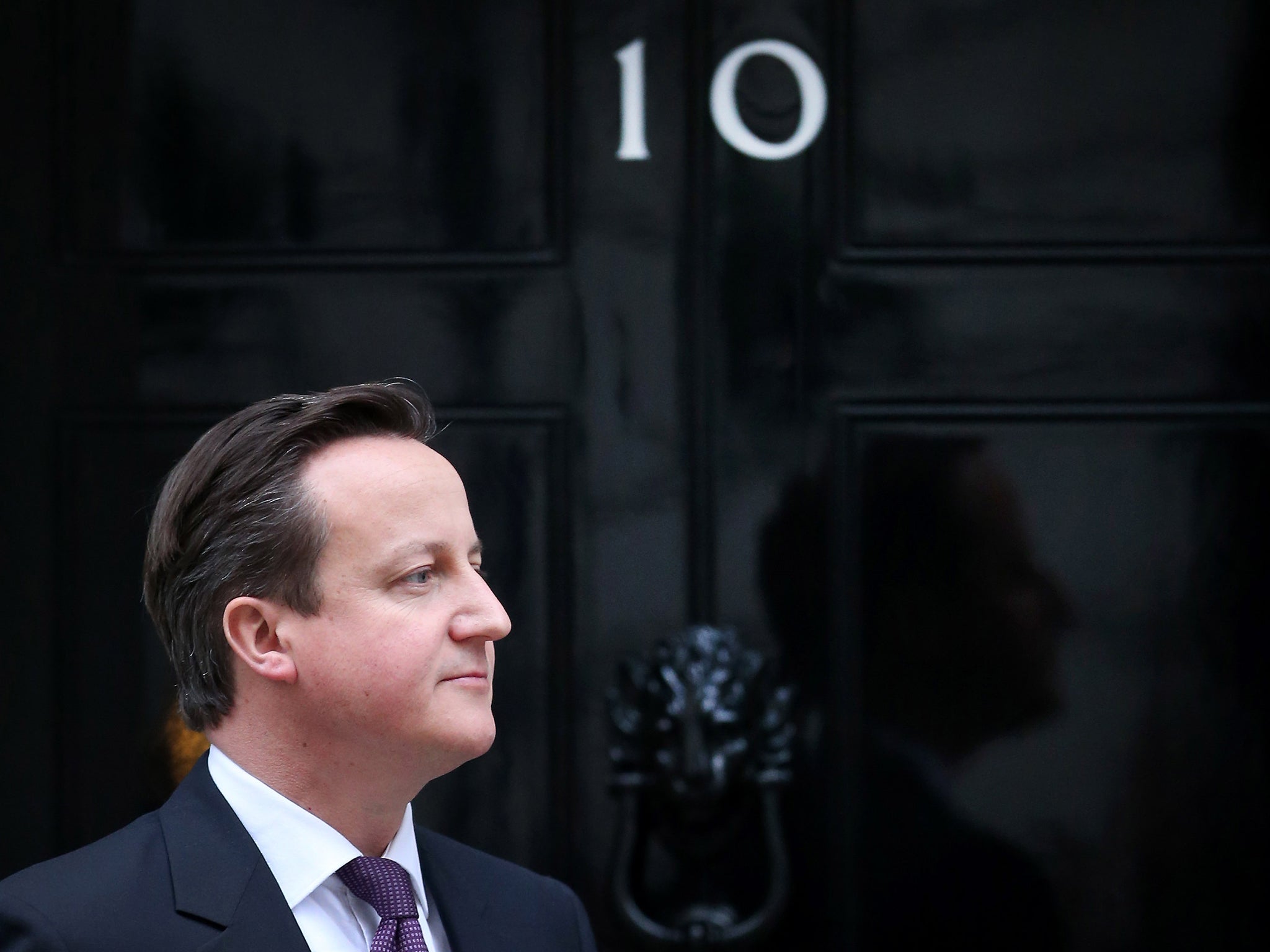General Election 2015: David Cameron may attempt to form minority Tory government
Cameron could remain PM without a majority or coalition agreement

Your support helps us to tell the story
From reproductive rights to climate change to Big Tech, The Independent is on the ground when the story is developing. Whether it's investigating the financials of Elon Musk's pro-Trump PAC or producing our latest documentary, 'The A Word', which shines a light on the American women fighting for reproductive rights, we know how important it is to parse out the facts from the messaging.
At such a critical moment in US history, we need reporters on the ground. Your donation allows us to keep sending journalists to speak to both sides of the story.
The Independent is trusted by Americans across the entire political spectrum. And unlike many other quality news outlets, we choose not to lock Americans out of our reporting and analysis with paywalls. We believe quality journalism should be available to everyone, paid for by those who can afford it.
Your support makes all the difference.David Cameron might attempt to form a minority Conservative government after the election even if he failed to secure a coalition agreement or a majority of MPs in the House of Commons, it has emerged.
Senior Conservatives have said Mr Cameron could declare victory if he gets more seats or votes than Labour on Thursday and attempt to bring forward a Queen’s Speech in the House of Commons.
This would force Labour and the SNP to combine and vote down the Tories’ legislative agenda.
In a further sign that the post-election period could be somewhat chaotic, the SNP leader Nicola Sturgeon has said that her MPs would vote down a future Labour government’s Budget if it held the balance of power in parliament unless Ed Miliband changed his current plans. The former Cabinet Secretary, Gus O’Donnell, told The Independent “it could be weeks” before a new government is formed.
“It could be multi-party, it could be mixtures of coalitions and deals – and the deals may be written or unwritten,” he said. “There are all sorts of possibilities. I suspect all parties involved will definitely take more time to consult.”
A string of polls released over the weekend again suggested that the election is too close to call. Two gave the Conservatives a 1-point lead while another had the two main parties level-pegging.
Should that happen, under convention, Mr Cameron would get the first chance of to try to form a new government and would remain in Downing Street at least until his Queen’s Speech is put to a vote in the House. Senior Tories told The Sunday Times that in that scenario Mr Cameron would declare victory and give a statement in Downing Street on Friday, challenging Mr Miliband to strike a deal with the SNP to bring him down.
They say he will “quickly” argue that Labour cannot claim “legitimacy” to form a government if it is behind in its support and needs nationalist backing. Asked on the Sunday Politics show whether Mr Cameron would test his support by bringing forward a Queen’s Speech, the former Foreign Secretary, William Hague, said: “You would have to see the election results in that scenario.”
In a speech today, Mr Cameron will say that voters face an “inescapable choice” of either him or Mr Miliband in No 10.
Join our commenting forum
Join thought-provoking conversations, follow other Independent readers and see their replies
Comments